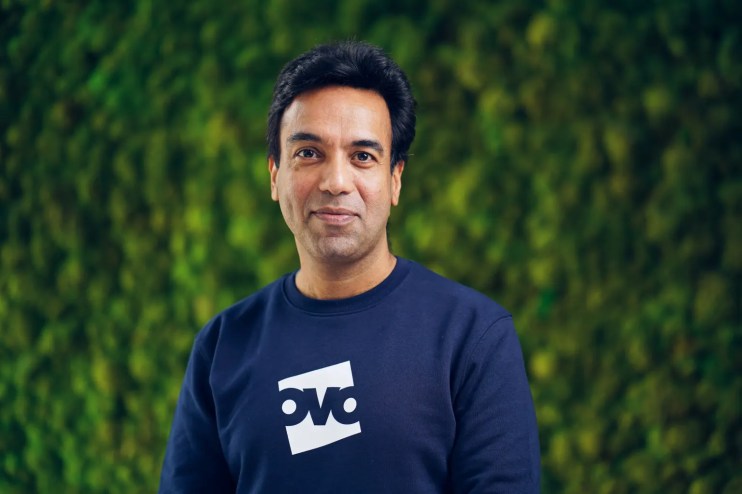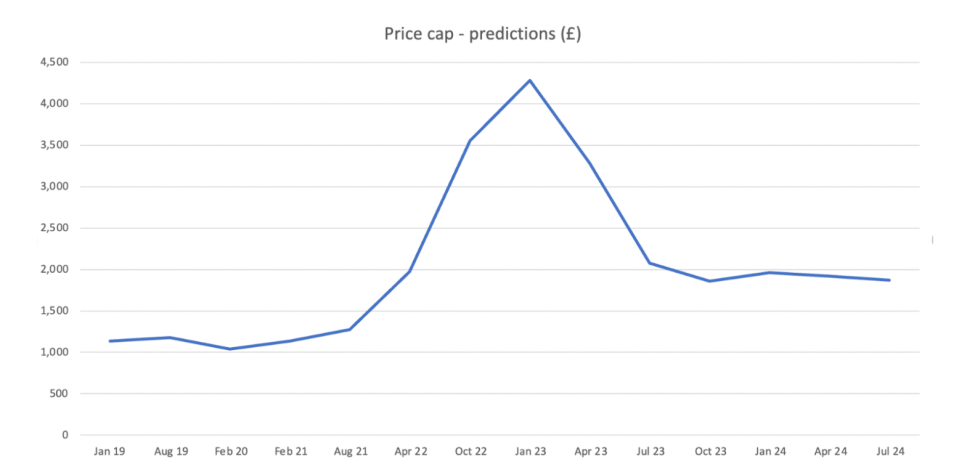Ovo backs Ofgem call for ‘radical’ redesign of energy price cap as Brits brace for winter

Ovo has supported Ofgem’s calls for the current set up of the energy price cap to be reconsidered, with household bills set to stay ultra-high over winter.
Chief executive Raman Bhatia told City A.M. that the mechanism needed to be reassessed following instability across the energy sector which had seen 30 suppliers collapse – including the de-facto nationalisation of Bulb Energy.
“We support the principle of price protection in general but we must accept that the energy market of today is vastly different from what it was pre-energy crisis. In this new era of extreme volatility we need a social tariff for households who need most support and redesign the price cap radically to ensure it is fit for the rest of the market,” the Ovo boss said.
His comments put growing pressure on ministers to reconsider the price cap, following criticism from other suppliers this week, including Good Energy boss Nigel Pocklington – who is also in favour of a social tariff for households this winter.
This comes after Ofgem boss Jonathan Brearley urged ministers to consider whether the “very broad and crude” price cap is still fit for purpose following the domestic energy crisis, which saw 30 suppliers collapse.
He is uncertain the mechanism is functioning as intended, amid concerns the price cap is doing more harm than good for households amid a painful cost-of-living crisis.
“The price cap was designed for a market that was much more stable – so, pre-2020 – and it worked quite well. But in this volatile market, the price cap has costs as well as benefits, so we would welcome a debate on the future of pricing regulation,” he told The Guardian, earlier this week.
Ofgem is currently consulting on the prospect of a social tariff for households, which would have to pass through legislation.
Households to suffer price cap pain into winter
London-based think tank, the Centre for Policy Studies, recently published its own findings on the mechanism – warning that the cap was resulting in higher minimum prices for customers rather than protecting non-switching households from suffering hikes in their energy bills as intended.
It also contributed to the industry volatility which saw dozens of small energy firms exit the market, costing households an estimated £2.7bn, unable to pass high wholesale costs to customers.
Cornwall Insight expects the price cap to remain near £2,000 per year, almost double pre-crisis levels, up until next winter at the earliest.
This would be alongside no further support packages from the government for energy users – which helped subsided ultra-high rates until this summer.

Dr Craig Lowrey, principal consultant at Cornwall Insight, said: “Despite recent reductions in the price cap, households are still facing bills that are well above historic levels. This has raised questions about the cap’s purpose, its efficacy in safeguarding consumers, and its impact on tariff competition.
The cap does have supporters within the industry, such as Octopus chief executive Greg Jackson.
“The energy price cap was the single biggest driver of energy companies putting effort into efficiency rather than just passing bloated costs on to consumers. Because energy prices are so opaque, some form of price protection is critically important for everyone,” Jackson told City A.M. in an interview in June.
When approached for comment, the government declined to directly comment on the price cap.
“The government will always ensure that the energy market is working for consumers to protect them from sky high bills and that households are getting the best deal,” a spokesperson for the Department for Energy Security and Net Zero said.